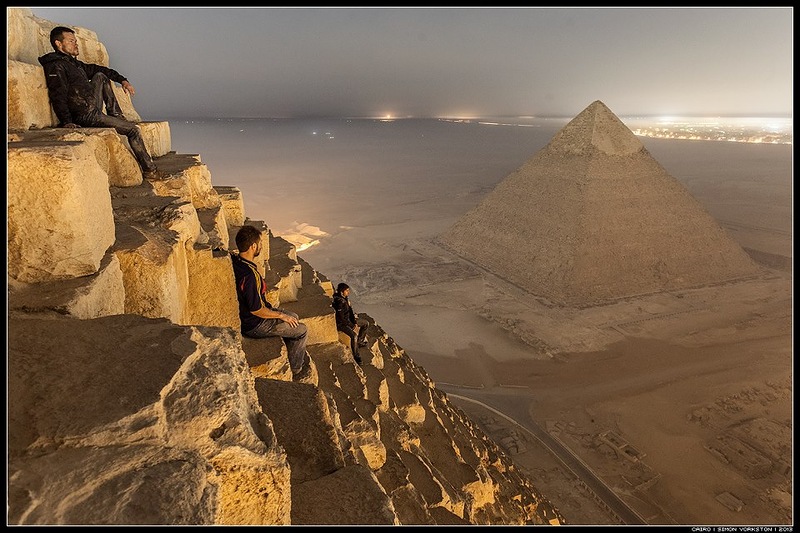 Almost six months ago, I began this blog with an inaugural post making fun of Thomas Friedman. I am neither the first nor the last person to do this, and my mocking was not the funniest on the topic either. But for what it’s worth, I thoroughly enjoyed doing it.
Almost six months ago, I began this blog with an inaugural post making fun of Thomas Friedman. I am neither the first nor the last person to do this, and my mocking was not the funniest on the topic either. But for what it’s worth, I thoroughly enjoyed doing it.
Incidentally, it also wasn’t the last time I’d make fun of him on this very same blog. Yup, you got it: Friedman’s gone and done it again. Now I realize the man doesn’t write his own headlines, but one gets the feeling that whoever does that job for him is mailing it in too. His latest column’s title? “Pay Attention.” (I suppose when you reach the level of inanity that Friedman has, blatant pleas for a captive audience are to be expected.) Somewhere in there is an apt metaphor for the last gasp of fast-declining newspapers. But like Friedman, I’m too lazy to elaborate. Why make logical connections when you can make large, specious leaps instead?
Now if I were Sir Thomas, here is where I’d inadvertently run into a [Singaporean bureaucrat/orphaned Cambodian child/Chinese investment banker/taxi driver from any one of those countries]. He’d casually throw out some inauspicious line, like “The traffic here is bad, but an empty road is worse luck than a traffic jam.” Or, “It may not be perfect, but I love my country.” Or, “Dude, stop dictating crappy metaphors into your iPhone while I’m trying to drive here.” As Mr. Friedman, I’d take it from there, weaving in a completely distended argument that manages to mention clean energy, Chinese high-speed rail, and wi-fi, all within a neat 700-word column (written, of course, in under five minutes).
As it happens, I don’t have to do this for him, since Mr. Friedman has taken care of things all by his lonesome. I could tell from the very start that this latest column was a keeper:
I had some time to kill at the Cairo airport the other day so I rummaged through the “Egyptian Treasures” shop. I didn’t care much for the King Tut paper weights and ashtrays but was intrigued by a stuffed camel, which, if you squeezed its hump, emitted a camel honk. When I turned it over to see where it was manufactured, it read: “Made in China.” Now that they have decided to put former President Hosni Mubarak on trial, I hope Egyptians add to his indictment that he presided for 30 years over a country where nearly half the population lives on $2 day and 20 percent are unemployed while it is importing low-wage manufactured goods — a stuffed camel, no less — from China.
Brilliant! The man managed to squeeze in China, tacky gift shops, airports (Thomas Friedman loves him some airports), and an utterly nonsensical plea to imprison Hosni Mubarak for participating in a little thing called globalization. (Later, the essay even closes with this absolute gem: “This is so much more important than Libya.”)
But Friedman isn’t finished, oh no. Just a bit further down, he ruminates: “If elections for the Parliament are held in September, the only group in Egypt with a real party network ready to roll is the one that has been living underground and is now suddenly legal: the Islamist Muslim Brotherhood.”
Heavens to Betsy, no! Anything but that! God forbid a democratic revolution actually results in…democracy. Friedman quotes Mohamed ElBaradei, a (non-Muslim Brotherhood) presidential candidate, warning, “You will have an unrepresentative Parliament writing an unrepresentative Constitution.” (To be clear, ElBaradei’s “unrepresentative Parliament” refers to representatives elected freely by the Egyptian population.) Sadly, it never really dawns on Friedman that perhaps a contender for the presidency may in fact have a vested interest in portraying all rivals as less than desirable.
Towards the end, Friedman lays out his case more succinctly:
Free elections are rare in the Arab world, so when they happen, everybody tries to vote — not only the residents of that country. You can be sure money will flow in here from Saudi Arabia and Qatar to support the Muslim Brotherhood.
America, though, cannot publicly intervene in the Egyptian election debate. It would only undermine the reformers, who have come so far, so fast, on their own and alienate the Egyptian generals. That said, though, it is important that senior U.S. officials engage quietly with the generals and encourage them to take heed of the many Egyptian voices that are raising legitimate concerns about a premature runoff.
For those of you keeping track at home, things Monsieur Thomas is afraid of include: 1) democracy, 2) “everybody [trying] to vote”, and 3) outside campaign contributions — the last of which would never happen in the United States, obviously. In Friedman’s intricate mind (which, not unlike the Internet, also appears to consist of a series of tubes), America cannot intervene in Egyptian democracy. It can only pressure the undemocratic Egyptian military to delay voting so the preferred candidates win. Because if we can’t even pull off a little vote-rigging here and there, what was the point of displacing Mubarak in the first place?

 I just conducted a quick spot check, and was horrified to learn that — in the entire history of this blog — I have devoted only
I just conducted a quick spot check, and was horrified to learn that — in the entire history of this blog — I have devoted only 



